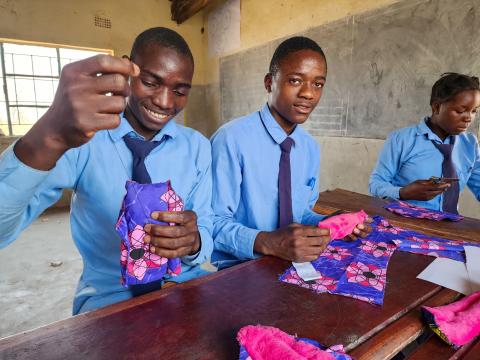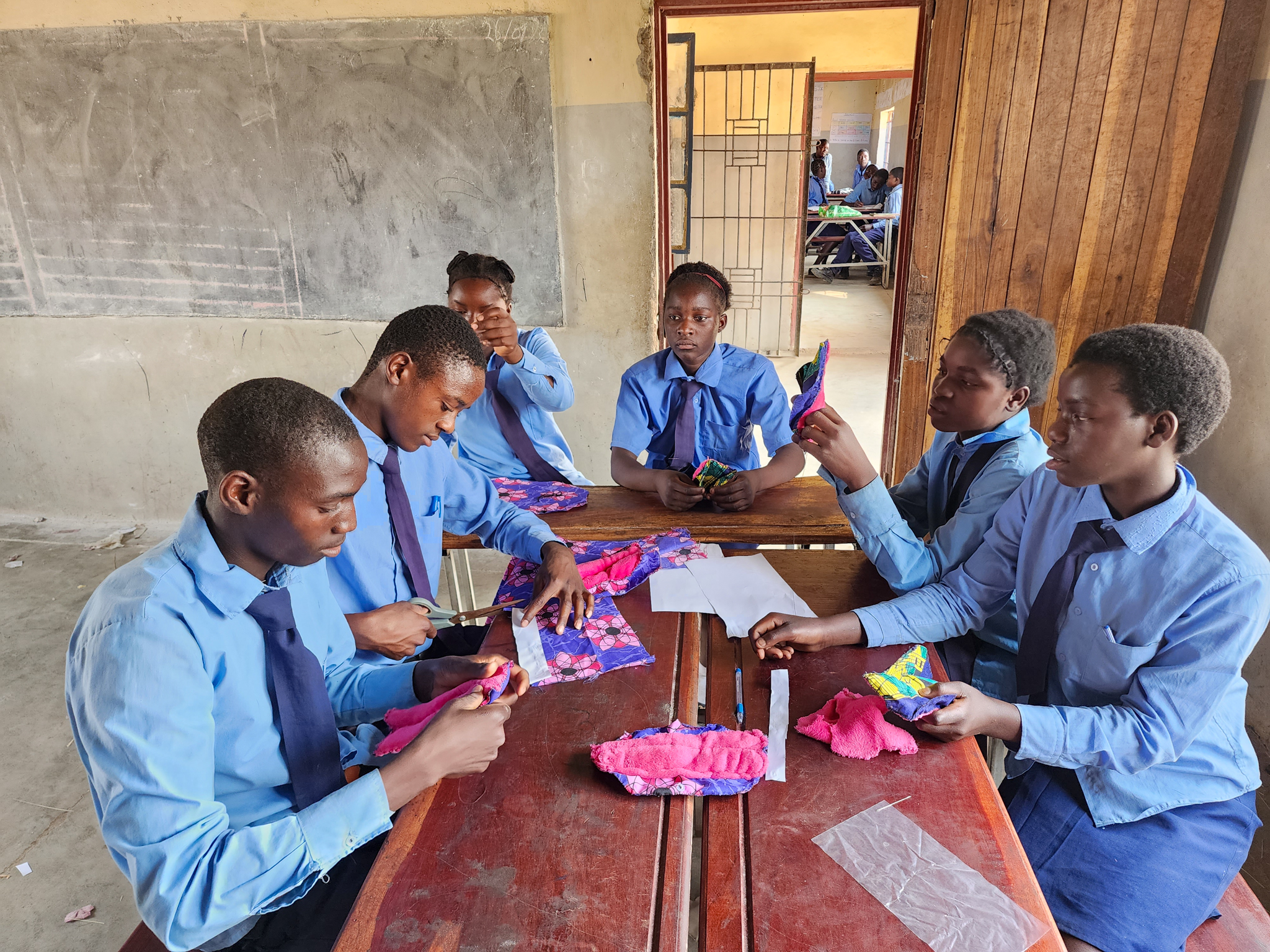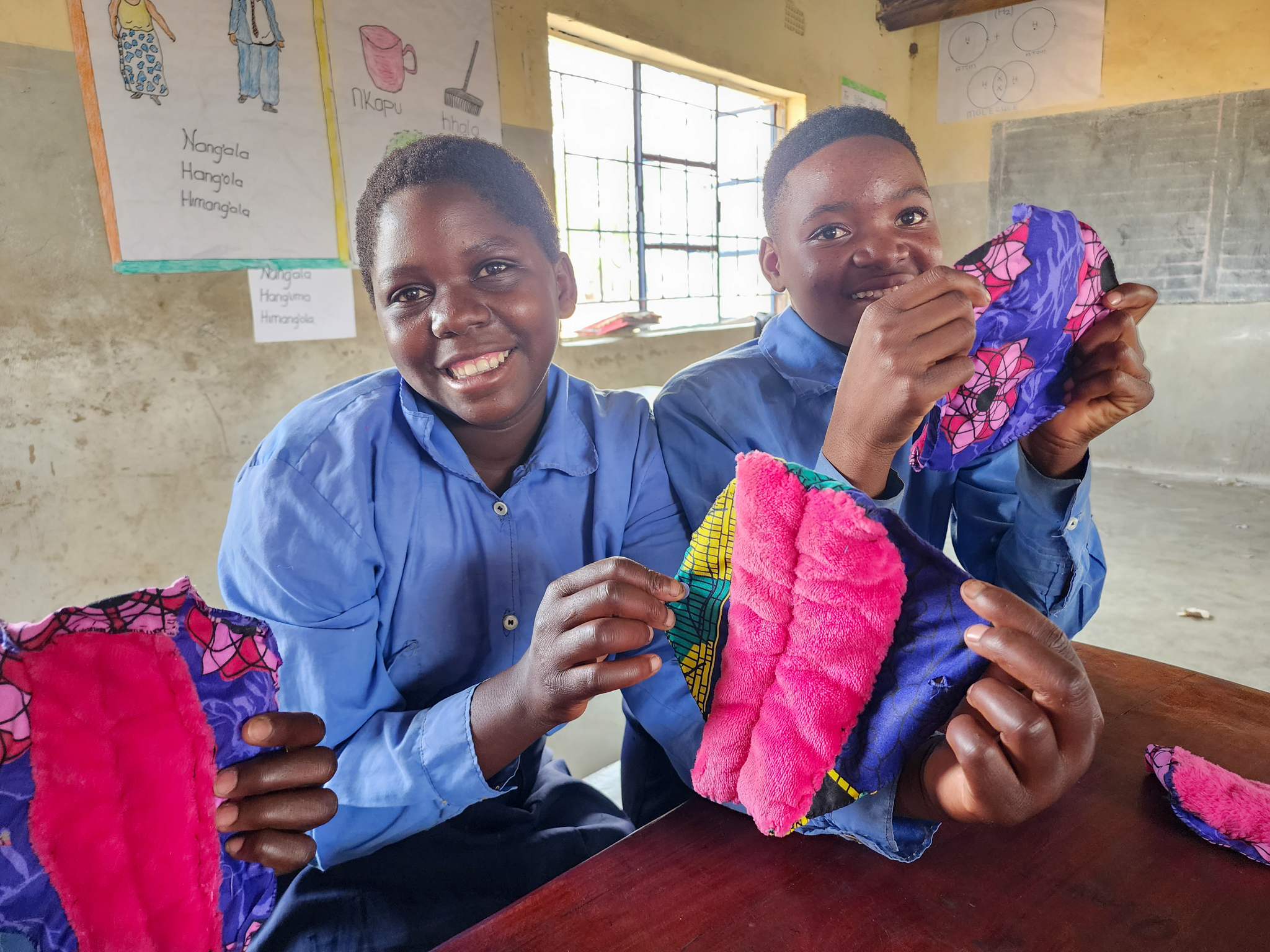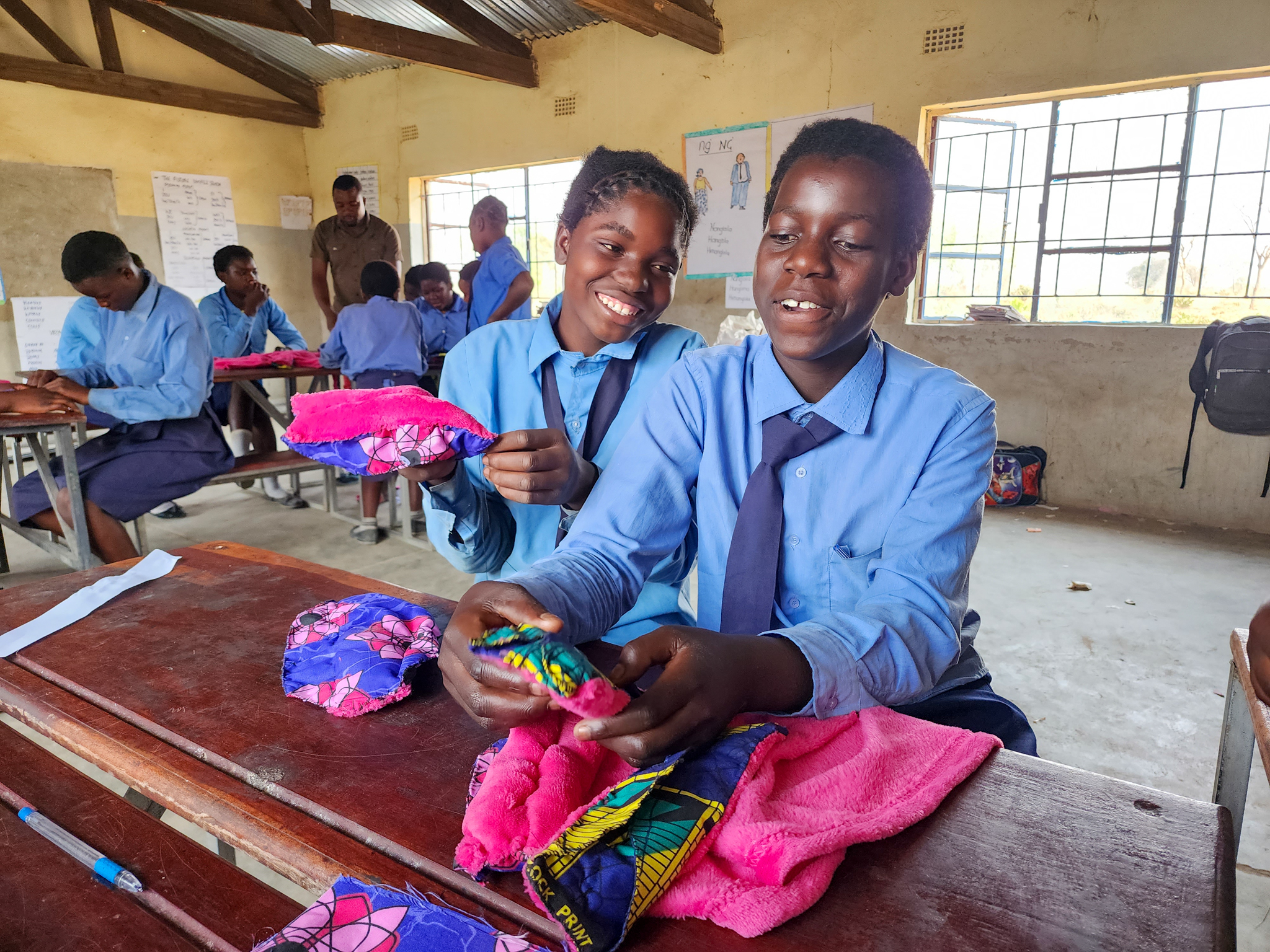Ending Menstrual Stigma: Boys Taking the Lead in Menstrual Hygiene Management in Zambia

Menstrual hygiene remains a significant challenge for many girls and young women in Zambia and across many parts of the world. Limited access to affordable, hygienic menstrual products often leads to feelings of embarrassment, stigma, and even school absenteeism during periods. In some communities, cultural taboos and misinformation further compound the problem, making it difficult for girls to manage their menstruation with dignity and confidence. As a result, many girls miss out on crucial days of learning, affecting their education and overall well-being.
In the face of these challenges, communities and organisations are seeking innovative solutions to promote better menstrual health and break down the barriers that prevent girls from participating fully in school and society. One such inspiring example comes from the villages of Mbeza and Muchila in Namwala District, Zambia, where young learners are taking matters into their own hands by designing and making reusable menstrual towels.

At Tampwe Primary School, both girls and boys are actively involved in the Menstrual Hygiene Management (MHM) club. Through sewing activities, they are creating eco-friendly, affordable menstrual products that empower girls to manage their periods confidently.
“The activities we are engaged in during the MHM club not only teach important sewing skills but also give us a sense of community, cooperation, and understanding,” shares Gertrude, a student from Tampwe. Her peers echo her sentiments, emphasising how the initiative fosters friendship and empathy among classmates.
This inclusive approach is particularly impactful because it involves boys in the conversation. Kelvin, a male student participating in the project, explains, “It helps us understand what girls go through and teaches us to support them. We want to help make sure no girl feels embarrassed or left out because of her period.”

By promoting empathy and shared responsibility, the program aims to normalise conversations around menstruation and reduce stigma.
Mr. Bevious Hangoba, a patron of the MHM club, highlights the broader benefits: “As learners embrace this initiative, they are developing essential life skills, from problem-solving to teamwork, while promoting a culture of inclusivity and support.”
The reusable towels are crafted from comfortable, absorbent materials, and serve as an environmentally friendly alternative to disposable products. This not only helps girls stay in school during their periods but also encourages environmental consciousness among young learners.

World Vision, in partnership with Education Above All Foundation’s Educate A Child program and FAWEZA, is committed to supporting such innovative approaches. “Our goal is to empower girls and promote environmental awareness,” says Sydney Simubwa, EVE Project Manager. “By encouraging the production and use of reusable menstrual towels, we’re helping girls manage their health with dignity and independence, while fostering a more inclusive community.”
As the world counts down to Menstrual Health & Hygiene Day on 28th May, stories from Mbeza and Muchila remind us that small, community-driven actions can create lasting change—breaking taboos, empowering girls, and building healthier, more inclusive societies.